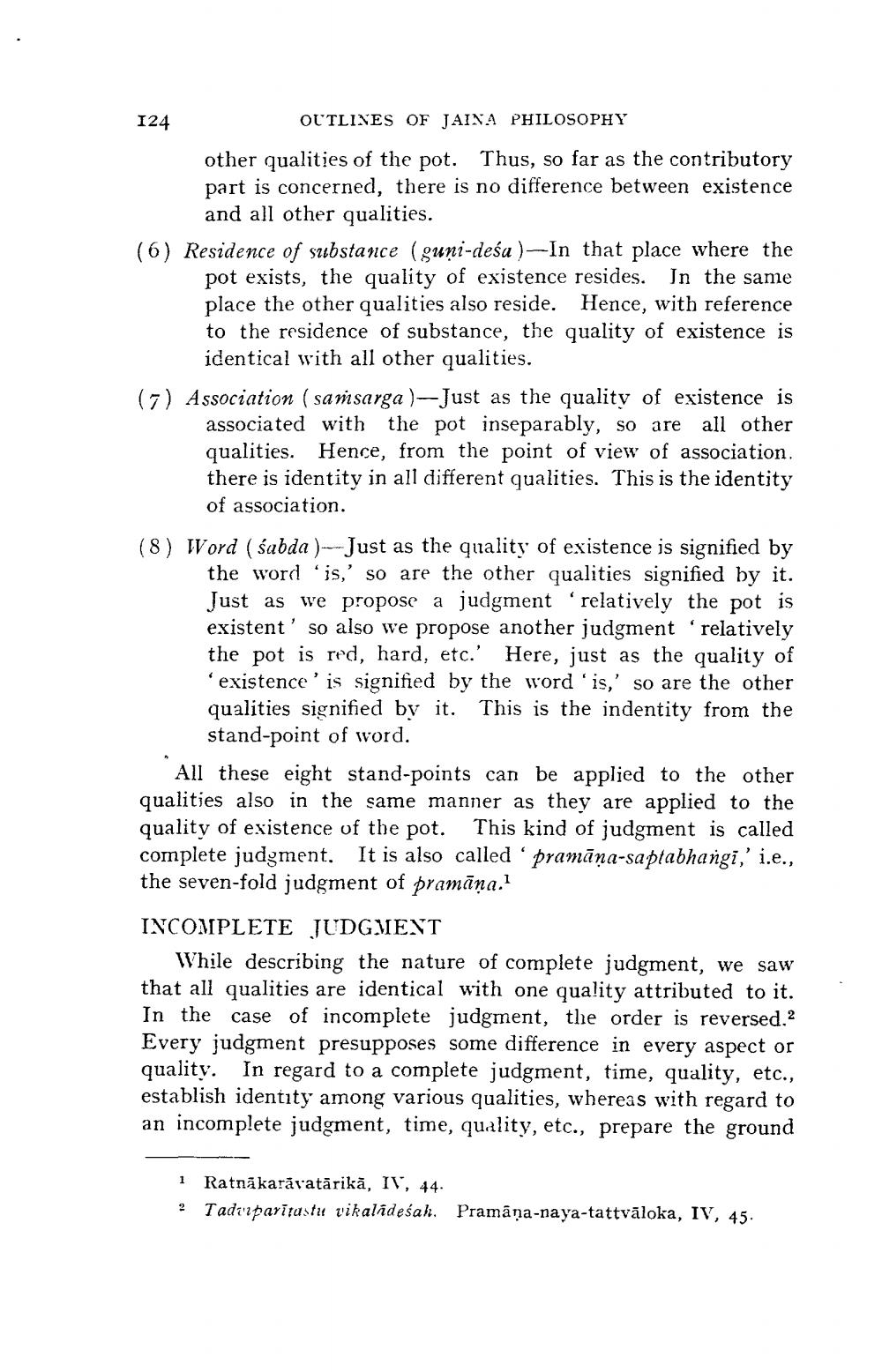________________
124
OL'TLINES OF JAINA PHILOSOPHY other qualities of the pot. Thus, so far as the contributory part is concerned, there is no difference between existence
and all other qualities. (6) Residence of substance (guni-deśa )-In that place where the
pot exists, the quality of existence resides. In the same place the other qualities also reside. Hence, with reference to the residence of substance, the quality of existence is
identical with all other qualities. (7) Association ( samsarga) - Just as the quality of existence is
associated with the pot inseparably, so are all other qualities. Hence, from the point of view of association. there is identity in all different qualities. This is the identity of association.
(8) Word (sabda -Just as the quality of existence is signified by
the word 'is, so are the other qualities signified by it. Just as we propose a judgment relatively the pot is existent' so also we propose another judgment relatively the pot is red, hard, etc. Here, just as the quality of 'existence'is signified by the word 'is,' so are the other qualities signified by it. This is the indentity from the
stand-point of word. All these eight stand-points can be applied to the other qualities also in the same manner as they are applied to the quality of existence of the pot. This kind of judgment is called complete judgment. It is also called 'pramāņa-saptabhangi,' i.e., the seven-fold judgment of pramāņa.? INCOMPLETE JUDGMENT
While describing the nature of complete judgment, we saw that all qualities are identical with one quality attributed to it. In the case of incomplete judgment, the order is reversed.2 Every judgment presupposes some difference in every aspect or quality. In regard to a complete judgment, time, quality, etc., establish identity among various qualities, whereas with regard to an incomplete judgment, time, quality, etc., prepare the ground
1 Ratnākarávatārikā, IV', 44. 9 Tada parirastu vikalideśah. Pramāņa-naya-tattvāloka, IV, 45.




